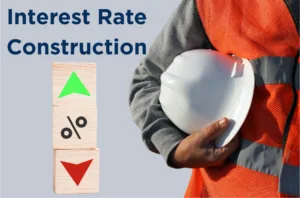Recently we talked with Anthony, who was a very busy professional. He got into real estate to diversify his income, but felt like he was working two jobs just to keep up with his real estate and his regular job.
He was ready to jump ship and sell all his active investments, and move it over to just investing passively. He was exploring options for passive income, which is where today’s topic comes into play.
Thanks to new technology like Blockchain, real estate can be Tokenized, creating more options than ever before to invest in real estate. Also newer in the last 15 years, website platforms like Fundrise, Crowdstreet, etc provide even more readily accessible options with low investment minimums.
With no lack of great options- which one is the best fit?
1. Fundrise and Other Real Estate Crowdfunding Platforms
How it Works:
Platforms like Fundrise, CrowdStreet, and RealtyMogul allow investors to pool funds online to buy into diversified portfolios or specific property deals. They function as digital intermediaries between investors and real estate sponsors.
Accessibility:
This model has democratized real estate investing. Fundrise, for instance, allows entry with as little as $10–$1,000, depending on the account type. The platform then allocates capital into “eREITs” or “eFunds” that hold residential, commercial, or mixed-use assets. CrowdStreet serves accredited investors while RealtyMogul offers non-accredited opportunities for real estate investment like Fundrise.
Fundrise is best for non-accredited, more entry-level investors, RealtyMogul offers a middle ground with opportunities for higher-net-worth investors whether they’re accredited or not, and CrowdStreet is best for accredited investors seeking to invest in individual projects.
Requirements:
- Minimum investment: $10 (starter) to $25,000+ (advanced portfolios on CrowdStreet)
- Accreditation: Not required for most Fundrise and Realty Mogul offerings, unlike many private funds.
- Liquidity: Limited. Investors typically commit capital for at least 5 years, with early redemptions subject to fees.
- Returns: Often target 6–12% annually, combining rental income and appreciation. Because the funds are private, they are less volatile than publicly traded REITs that are subject to stock market gyrations.
Investor Appeal:
Crowdfunding platforms appeal to those who want real estate exposure without managing property. Fundrise, for example, automatically reinvests dividends, tracks performance through a dashboard, and offers hands-off diversification—ideal for busy professionals or investors new to real estate.
Key Risk:
Investors must remember that despite the convenience, these investments are not liquid and not insured by the FDIC. The underlying assets are private real estate, meaning valuations are periodic and market shocks may not be immediately visible.
2. Publicly Traded REITs (Real Estate Investment Trusts)
How it Works:
REITs are companies that own, operate, or finance income-producing real estate. You can buy shares of REITs on the stock market just like Apple or Microsoft. Common examples include Prologis (industrial), Simon Property Group (retail), and Equity Residential (multifamily).
Accessibility:
REITs offer the easiest and most liquid form of real estate investing. With just $100 or less, investors can start buying REIT shares through any brokerage account or ETF (Exchange-Traded Fund).
Requirements:
- Minimum investment: None (the cost of one share)
- Accreditation: Not required
- Liquidity: High — REITs trade daily on major exchanges.
- Returns: Historically average 8–12% total returns annually over long periods.
- Tax considerations: Dividends are taxed as ordinary income, not long-term capital gains, unless held in tax-advantaged accounts (e.g., IRAs).
Investor Appeal:
Public REITs offer instant diversification and liquidity. They’re well-suited for investors who want exposure to real estate’s income and appreciation potential but prefer the simplicity of stock investing.
Key Risk:
Because they’re publicly traded, REITs are subject to stock market volatility. Prices can swing based on interest rates or investor sentiment, even if the underlying properties perform steadily.
3. Private Real Estate Funds
How it Works:
Private real estate funds pool investor capital to acquire, manage, and sell properties—often targeting specific sectors like multifamily, industrial, or data centers. These funds are professionally managed and typically structured as limited partnerships.
Accessibility:
These investments are open primarily to accredited investors—those with a net worth over $1 million (excluding their primary home) or an annual income above $200,000 ($300,000 for couples).
Requirements:
- Minimum investment: Typically $100,000–$500,000
- Accreditation: Required
- Liquidity: Very limited — capital is usually locked for 5–10 years.
- Returns: Targeted 12–20% IRR, depending on risk profile and leverage.
- Tax considerations: Investors may receive K-1s and benefit from depreciation deductions, 1031 exchanges, and other tax-efficient structures.
Investor Appeal:
Private funds attract high-net-worth investors seeking access to institutional-grade assets and higher potential returns. Because these funds often invest in value-add or development projects, investors benefit from appreciation rather than just cash flow.
Key Risk:
The main drawback is illiquidity and complexity. Investors must perform thorough due diligence on the fund sponsor, track record, and fee structure (often 1–2% management plus 20% profit share).
4. Tokenization
How it Works:
Tokenization in commercial real estate works by converting a property’s ownership into digital tokens on a blockchain, allowing it to be fractionalized and traded like stocks.
This involves creating a legal entity to hold the property, issuing a set number of tokens representing fractional ownership, and using smart contracts to manage rights and obligations. The tokens are then listed on a digital exchange, enabling investors to buy, sell, and trade fractional ownership more easily, which increases liquidity for the property owner and provides new investment opportunities for a wider range of investors
Accessibility:
These investments are publicly traded on digital exchanges, allowing for ease of purchase and sale with full liquidity. Websites like www.lofty.ai provide real estate exchanges built on Blockchain technology, simplifying and speeding up the real estate process.
Requirements:
- Minimum investment: $50 or the cost of a share
- Accreditation: Not required
- Liquidity: Extremely high- buy or sell in minutes
- Returns: Varies based on property selected – 6-28%
- Tax considerations: Similar to direct ownership, with a 1099 issued to investors
Investor Appeal:
Ease of investing, with less time commitment to find and vet deals than direct ownership. The ownership structure is a unique combination of Crowdfunding, REITs and Private Funds. Because of the blockchain technology, shares can be more easily traded, with investment minimums being low.
Practically, Tokenized real estate functions similarly to a REIT, but is not subject to the market swings of a publicly traded REIT.
Key Risk:
The aspect of selling and buying real estate on Tokenization is currently ‘The Wild West’ in the tried and true real estate investing methods. Generally, platforms must register with the SEC but exist under exemptions for trading platforms. Investors should exercise care with newer investment technologies.
Conclusion
As with any investment, due diligence remains crucial. Understand the platform’s structure, read the offering materials carefully, and evaluate how fees and liquidity align with your goals.
Real estate—digital or not—remains a cornerstone of wealth building. The difference today is that investors have more tools than ever to participate in it, from anywhere, with just a few clicks.
Many Real Estate Investors we work with appreciate the multiple strategies that we can support in order to built wealth in real estate investing. If you are looking to grow your physical real estate portfolio, please reach out to us for a free strategy call.
Sources
https://www.forbes.com/sites/investor-hub/article/what-is-fundrise-app-investing-real-estate-reits
https://www.solulab.com/real-estate-tokenization/
https://www.sec.gov/newsroom/speeches-statements/peirce-statement-tokenized-securities-070925





